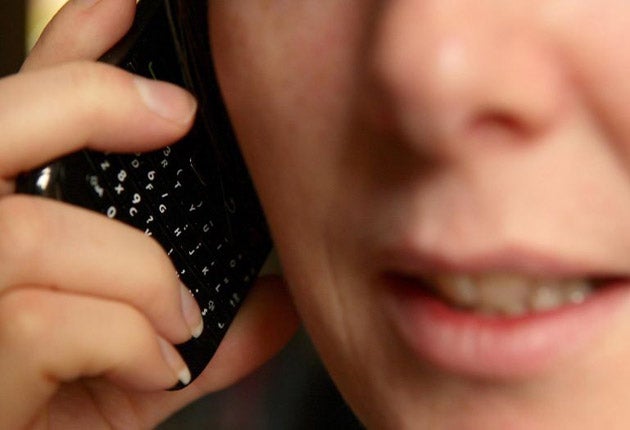Mobile users being 'held hostage' by providers

Your support helps us to tell the story
From reproductive rights to climate change to Big Tech, The Independent is on the ground when the story is developing. Whether it's investigating the financials of Elon Musk's pro-Trump PAC or producing our latest documentary, 'The A Word', which shines a light on the American women fighting for reproductive rights, we know how important it is to parse out the facts from the messaging.
At such a critical moment in US history, we need reporters on the ground. Your donation allows us to keep sending journalists to speak to both sides of the story.
The Independent is trusted by Americans across the entire political spectrum. And unlike many other quality news outlets, we choose not to lock Americans out of our reporting and analysis with paywalls. We believe quality journalism should be available to everyone, paid for by those who can afford it.
Your support makes all the difference.Mobile phone users risk being "held hostage" by their provider because of the cost of switching to other firms, according to a report today.
Consumers are confused about their phones being "locked" to one company, with almost a third not sure if it is legal to change to a different one.
Most of the 2,000 adults questioned by mobile network giffgaff said they should be given information about how to "unlock" their mobile when they bought it.
Mike Fairman, chief executive of giffgaff, said: "Consumers risk being held hostage by their mobile network to the tune of £400 million simply to switch networks with their existing phone.
"The practice of selling mobile phones locked to one network, or Sim-locking as it is known in the industry, is having a big impact on consumers' ability to get the best deal on the market."
Consumers were charged around £17 to switch networks, said the report.
Join our commenting forum
Join thought-provoking conversations, follow other Independent readers and see their replies
Comments